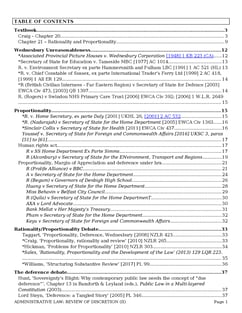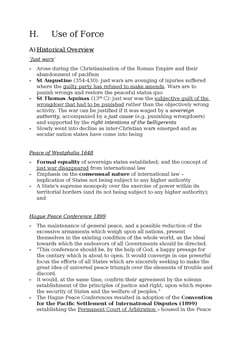Jones v First Tier Tribunal [2013] UKSC 19
Judgement for the case Jones v First Tier Tribunal
Table Of Contents
KEY POINTS
The development of a consistent approach to issues like those within the term "a crime of violence" is primarily the responsibility of tribunals, not appellate courts. Tribunals are well-suited to determine these issues, and a pragmatic approach should be used to delineate the boundary between matters of law and fact. This approach leverages the expertise of both First-tier and Upper Tribunals for more effective decision-making.
Committing unlawful or reckless harm to another person with the knowledge that it will result in physical harm to someone else is a criminal offense under section 20 of the Offenses against the Person Act (OAPA) 1861.
Lord Carnwarth emphasized that courts and tribunals should consider the relative competence of each body in determining whether an issue should be categorized as a question of law or fact.
FACTS
A tragic incident occurred on the A282, a six-lane carriageway connecting Dartford Crossing to the M25 motorway. Mr. Jones, driving a Highways Agency gritter, encountered an articulated lorry driven by Mr. Brian Nash and a parked car.
A man named Mr. Barry Hughes ran onto the road, intending to end his life, causing a collision that severely injured Mr. Jones. Mr. Jones sought compensation from the Criminal Injuries Compensation Authority (CICA) but was denied on the grounds of not being a victim of a violent crime.
He appealed to the First-tier Tribunal (FTT) and later to the Court of Appeal, challenging that Mr. Hughes had committed criminal offenses. The FTT initially dismissed the appeal based on lack of intent to cause harm, but the Court of Appeal ordered a reconsideration, focusing on the issue of recklessness.
JUDGEMENT
Appeal allowed.
COMMENTARY
Lord Carnwarth's stance underscores the importance of ensuring that legal proceedings are conducted in a manner that makes the best use of the expertise and competencies of both courts and tribunals, ultimately contributing to more effective and just dispute resolution.
It recognizes that in certain cases, issues may fall into a gray area where legal and factual aspects intertwine, and a flexible approach is required to ensure fair and efficient adjudication.
For Further Study on Jones v First Tier Tribunal
Need instant answers? Our AI exam tutor is here to help.
Ask questions 🙋 Get answers 📔 It's simple 👁️👄👁️
Our AI is educated by the highest scoring students across all subjects and schools. Join hundreds of your peers today.
Get StartedSimilar Cases
Related Product Samples
These product samples contain the same concepts we cover in this case.
| Administrative Law | Errors Of Fact Notes (31 pages) |
| Administrative Law | Jurisdiction Notes (26 pages) |


